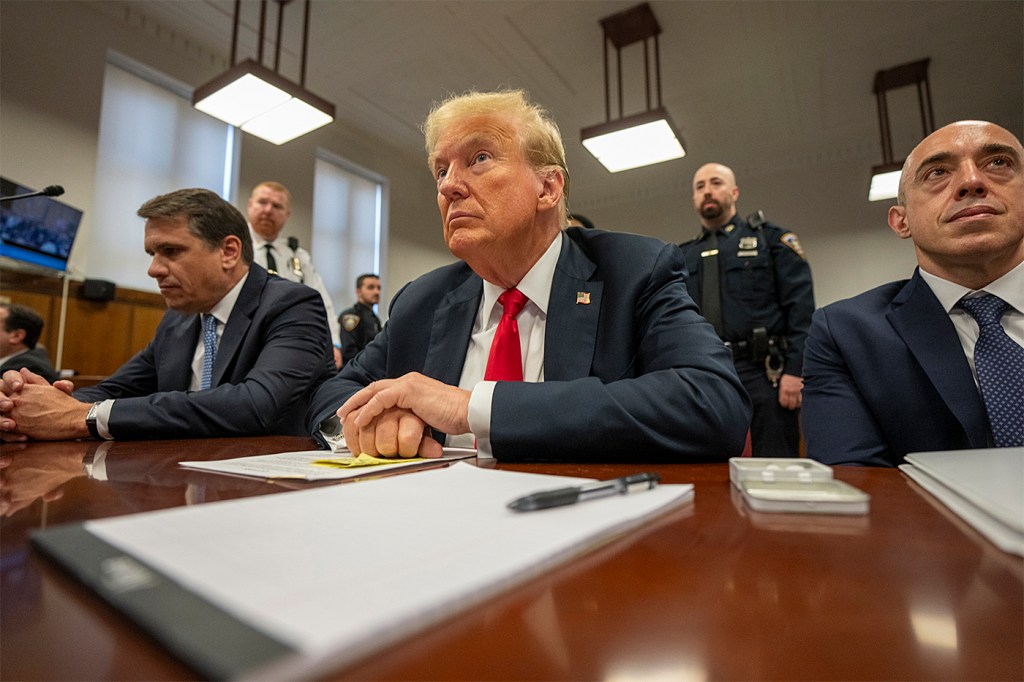Will closing arguments make a difference to the jury in Donald Trump’s hush-money trial?
Jurors in the criminal trial of Donald Trump heard closing arguments Tuesday. A Northeastern law expert explains why they are important.

Jurors in the criminal trial of Donald Trump heard closing arguments Tuesday from the former president’s defense lawyer and the prosecutor of the hush-money case.
In accordance with New York law, the defense delivered its statement first.
This is the first criminal trial in American history involving a former president. Trump has been charged with 34 felony counts of falsifying business records in order to conceal damaging information that could hurt his 2016 presidential election campaign.
In particular, it is alleged that Trump concealed a $130,000 payment via his then-lawyer Michael Cohen to Stephanie Clifford, the adult film actor known as Stormy Daniels.
Featured Posts
The trial started on April 15, and the jury heard 22 witnesses across 16 days of testimony. The case is expected to go to the jury on Wednesday. Judge Juan M. Merchan will give instructions to the jury before deliberations.
Northeastern Global News spoke to Rose Zoltek-Jick, an associate teaching professor at the Northeastern University School of Law, about the purpose of closing arguments at a trial and the impact they can have on jurors deciding a case.
What is the role of closing arguments in the whole process of a trial?
A closing is not evidence, but it is an argument where the lawyer gets to put together the case that they have presented or refute the case that the other side has presented, or try to poke holes in it.

It is a story. At trial, evidence comes in piece by piece, document by document, witness by witness. Opening and closing arguments are the two chances that a lawyer has to build a story that puts it all together.
So a closing is a chance to say this is what has happened in the trial, and this is how to understand it.
Does a closing argument impact the jury?
Yes, of course it does, because it helps the jury understand the whole story. In this case [Trump’s hush-money trial], the case has gone on for several weeks, the prosecution called [more than] 20 witnesses. It’s hard to put it all together or remember it all.
The person who has the burden of proof, in this case the prosecution, tried to show that they had proven the case against President Trump beyond a reasonable doubt. So they have to put all the evidence together to show that one piece of evidence relates to another piece of evidence, and how the whole thing hangs together because some evidence doesn’t become clear until other evidence also comes in.
What does the term ‘burden of proof’ mean?
The prosecution has to show on its own and in its own case or through the trial that the defendant has committed a crime on the books beyond a reasonable doubt. Every criminal case must be proven beyond a reasonable doubt by the evidence.
And how would you explain what is reasonable doubt?
[It means] that there is no reason to doubt the case. There is no reasonable reason for the jury not to believe the prosecution’s proof, that the case has been proven to the level of moral certainty, that they can convict and feel confident that they have made the right decision.
In a criminal case, one of the arguments available to [defense] is that the prosecutor has not produced enough evidence or enough quality evidence, or enough evidence that is credible to meet their burden that the case has been proven beyond a reasonable doubt.
It’s a difficult term to define, and judges and courts have struggled with the definition. It refers to the quantity and quality of the evidence that the jury chooses to believe is true.
Does the order in which closing arguments are delivered matter?
In New York, the defendant goes first. In many jurisdictions, the prosecutor goes first and the defendant answers. The prosecution may on occasion get a chance to do a very short rebuttal of anything new that the defendant has raised in their closing.
But New York is unusual in having the defendant go first. The reasoning for that is that the prosecution bears the burden of proof and that they should have the last chance to tell the jury that they have in fact met that burden.
Other jurisdictions see it in the opposite way. That the prosecution should go first, but the defendant should have the last word under the theory that the person who has the last word has a real chance to have their argument stick with the jury as they go into the jury room.
It’s a different sort of psychology as to whether going first is more important or going last is more important, and which order most conforms with the responsibility of the prosecution. The constitutional duty that the prosecution has under the due process clause [is] to satisfy the burden of proof. There’s an argument as to which order is congruent or aligns with that burden.











